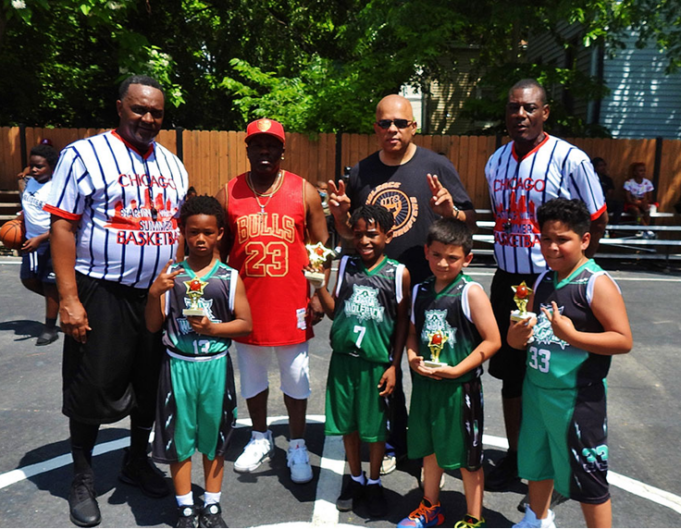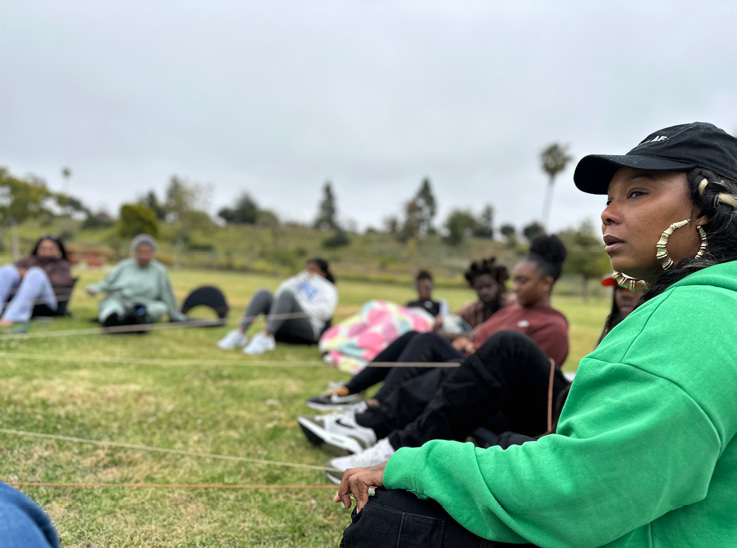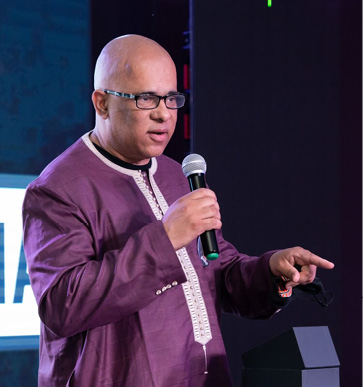“Blessed are the peacemakers, for they will be called children of God.” —Bible, Matthew 5:9
As record-breaking heat waves impact cities across America, activists are working to keep streets cool from violent outbursts in their communities. At the heart of these efforts is the belief that those most affected by violence are also best positioned to end it.
Through dialogue, reconciliation, education and job opportunities, former rivals, and former gang members turned public safety experts and community leaders, continue efforts to forge a path for peace.
A different approach
LaTanya Ward (aka FO), once spearheaded a successful April 6, 2019, gang peace walk to the memorial site on Crenshaw and Slauson after the fatal March 31 shooting of hip hop artist and businessman Nipsey Hussle (who was born Ermias Asghedom).
Today, she advocates for GUTT (Gaining Unity Through Transformation) Healing Circling, which aims to dismantle the entrenched cycle of violence through innovative and compassionate strategies.
“The initial aim was a continuation of the Nipsey-inspired peace march with the Black L.A. gangs. But since then, we’ve been addressing the trauma and the pain of the violence in gang-heavy communities and all those affected by that,” said Ms. Ward to The Final Call.
Ms. Ward and Raven Morgan co-founded GUTT as a healing space for Black people to learn de-stressing tools and healing techniques, and unlearn conditioned behaviors and adopted views of themselves. The focus is on educating participants about experiences that have shaped participants as individuals and communities.
A further aim of the program is to reach an understanding of self, systems, history, and current events, exploring and exposing participants to nontraditional methods of healing.
Ms. Ward and Ms. Morgan work as a bridge to help mend relationships across different backgrounds, and people impacted by the criminal or social justice system and people considered “undesirables” by society, according to Ms. Ward. And despite their small beginning, they are making an impact, she said.
For example, plans are underway with other community advocates to start a Black Healing Club. Their weekly healing circle was at one community park but has moved to another, which intersects four to five gang neighborhoods, according to Ms. Ward. That opened GUTT up for those from different ’hoods, that don’t get along, to participate, and it’s been working, she stated.
GUTT is a program of their organization WARFO (We Are Responsible for Ourselves). WARFO partners with different workforce development organizations and refers specifically ex-gang members for livable wage jobs, explained Ms. Ward.
The emphasis is on giving them something to do, versus telling them what not to do, she said. That, combined with the healing circle, is a key to building self-esteem, confidence and self-worth, she noted.
“There’s so much goodness in this world and so much that we can experience and connect to as Black people, so the healing circle is an opportunity to experience self-actualization, the means to really give ourselves a different perspective for our own lives, and really empower us to create our lives, in spite of,” Ms. Morgan told The Final Call.
Intervention and mediation
Programs like the anti-gun violence organization Chicago CRED (Create Real Economic Destiny) uses a holistic approach to combine proven models, such as street outreach, life coaching, counseling, violence prevention, workforce development, advocacy and prevention, to create transformative change in the South and West Side communities of Chicago.
Their work for peace includes developing non-aggression agreements and peace agreements on the ground, as well as high-level recruitment of highest-risk, highest-need individuals, explained Melvin Hayward, who served as chief program officer for over four years.
Because of their strong group of life coaches, they were able to build out Chicago CRED with a staff of over 100, servicing eight program sites across the South and West sides, said Mr. Hayward, former executive director and co-founder of HELPER Foundation, a leading player in Los Angeles’ gang reduction efforts for 20 years.
CRED’s team of 20 plus homegrown clinicians from the area enabled the organization to service approximately 600 participants aged 10-30, he said. In addition, they provided family case managers tasked with helping families to send youth back into stable environments and built out a women’s center and employment and training center, he added.
“Community violence intervention has grown tremendously throughout the years. … It’s just a phenomenal group of human beings all across the country, dedicated to saving lives and helping individuals transition,” Mr. Hayward told The Final Call.
In New York, there is Man Up! Inc. USA (MUSA), a comprehensive multi-cultural, social service agency, that provides violence prevention/intervention, youth services, employment training, and other family-related services that encourage community empowerment.
It was founded by Andre Mitchell, the first New York City Gun Violence Prevention Czar and co-chair of the Gun Violence Prevention Task Force.
In Maryland, Baltimore Brothers, Inc. utilizes conflict mediation, employment initiatives, re-entry services, and the facilitation of key community conversations and engagement to help keep the peace.
Since 2015, they have worked with Baltimore residents, particularly in Black, Latino and poor communities and low-income residents, who articulated an increased need for community-rooted anti-violence work with youth and young adults, according to organizers. In addition, Baltimore Brothers’ Manhood Training program utilizes inspirational, physical, and social disciplines.
Community empowerment
Members of the Nation of Islam, under the leadership and guidance of the Honorable Minister Louis Farrakhan, have worked for decades in resolving conflicts among street organizations.
In a message to street organizations delivered on December 11, 2004, in Newark, New Jersey, the Minister shared, “We, Muslims in the Nation of Islam, are not strangers to what you are facing on the streets.
We are your brothers, only we have been brought out of certain negative lifestyles with the Teachings of the Honorable Elijah Muhammad. We were killers, pimps, hustlers, robbers, thieves and liars, but we are reformed now. But we still share the same spirit of brotherhood.”
The Minister was and is instrumental in resolving “beefs” or disagreements among hip hop artists, street organizations and others. He issued a clarion call in 2015 for 10,000 Fearless, men and women willing to help stop the bloodshed in their communities.
In Los Angeles, Brother James Muhammad of Mosque No. 27, in Los Angeles, and Brother William Muhammad of Mosque No. 54 in Compton, mentor youth out of crisis conditions and violent situations and focus on catching them at a young age, especially between the ages of 14-18.
Brother William Muhammad stated that they have worked in their community for over 30 years, as F.O.I. (Fruit of Islam, the men of the Nation of Islam). They are also the co-founders of a non-profit committed to working with historically under-prioritized youth and young adults.
Brother James Muhammad said the key is to redirect the thought patterns of young people to more positive outcomes in life. Their efforts include attending murder crime scenes to connect families to community services.
“They may need help for burials, grief counseling, an ear to listen, a sense of protection, to know that everything will be okay, and they won’t face some type of retaliation,” he said.
In addition to frequent food giveaways, they provide record expungement seminars, and connect people with housing, job preparedness, and employment opportunities, he said.
“If someone is out there having a violent life, and they’re trying to change their life, they need something to replace it,” stated Brother James Muhammad. “We’re taking them away from violence, but what can we replace it with?” he continued. Whether it’s becoming a chef, mechanic, or academics, they help teens and adults, and not just for former gang members, but for their communities.
The road ahead
While significant progress has been made, the journey toward lasting peace is far from over.
For its part, the Chicago-based Violence Interrupters uses Restorative Justice Peace Circles to work toward conflict resolution. These circles have been organized in South Austin, Evanston, Highland Park, Chatham, Auburn Gresham, and West Garfield communities.
Tio Hardiman, executive director of Violence Interrupters, facilitates job training and education programs, once violence mediation takes place. The program works with youth ages 16-25 who may not be job-ready to help ensure they don’t re-offend.
“It’s all about changing behavior associated with violence,” said Mr. Hardiman. His organization also works through a 40-hour training curriculum addressing unaddressed trauma, violence prevention strategies, conflict resolution, gang mediation services, homeless services, and organizing peace circles.
“Sometimes the tension is so deep with some guys, we have to relocate individuals throughout the United States so they would be more at peace,” said Mr. Hardiman.
“I would like to send a salute out to all of the organizations nationwide who are doing their best to try to help reduce gun violence because you have so many groups out here working on the same level,” he said.















